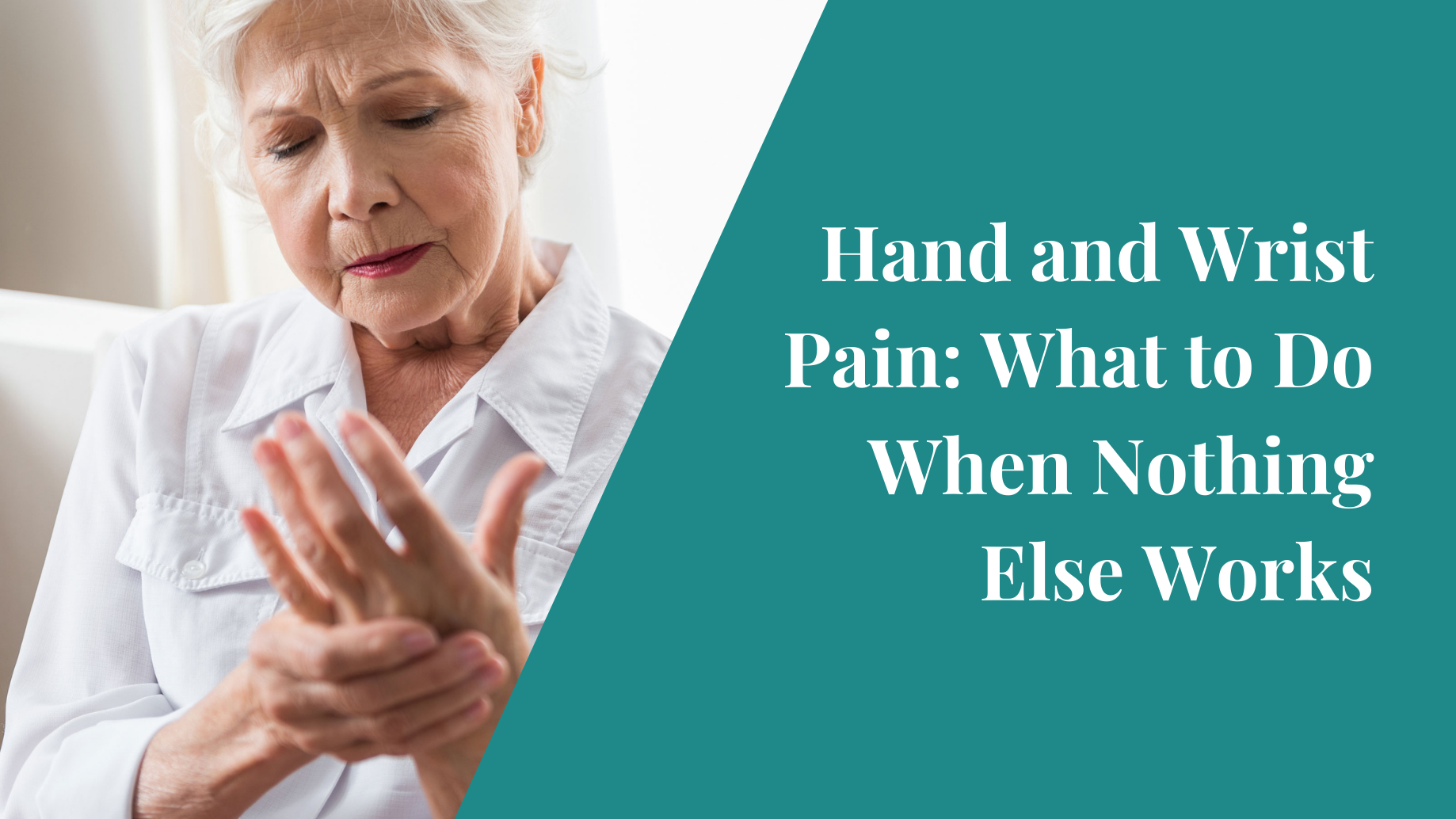Hands and wrists are utterly amazing. They dictate most of our lives by allowing us…

How This One Type of Therapy Can Help You Look And Feel Better At Any Age
If you did a Google search for “how to look and feel your best at any age,” you would literally get billions of results (that’s right…billions with a B).
These days, it seems like there are an endless number of opinions—many of them not coming from medical professionals—that give different tips to supposedly help you cope with changes to your body and live life to the fullest.
But what if most of the advice coming from “experts” on the Internet—and even from our country’s “sick care” system—is just leading us down a path where chronic diseases get treated but never prevented in the first place?
Besides, would you rather spend the rest of your retirement years taking pain medications to treat your osteoporosis? Or would you want to know how to get to the root of the problem and find healing for good?
That’s the question medical expert Dr. Gary Donovitz raised during a recent webinar about how to age healthier and live happier in your golden years. We thought it would be helpful to summarize some of Dr. Donovitz’ thoughts because they touch on a widely misunderstood topic: hormones.
First, it’s important to understand what are hormones and how they play an important role in how our bodies function as we get older.
Hormones control most major processes within the body and act as a regulatory system. They are messengers, designed to interact with target cells and organs to stimulate them into action.
As we age, hormone production can be affected, resulting in a hormonal imbalance. Hormonal imbalance has a variety of symptoms and effects on your body.
So if you’re worried about getting osteoporosis or cancer or even Alzheimer’s disease, one key indicator could be your hormones.
Seems like an obvious connection, right? One of the main problems with that point, Dr. Donovitz said, is that most doctors and Big Pharma don’t talk about it. The result is that most people have preconceived notions about hormones and what they do to the human body.
That’s why, at the Tolbert Center, we say it’s about time for us to take a second look at how we feel about hormones and how bioidentical hormone replacement pellet therapy, in particular, can help patients restore their active lifestyles at any age.
One of the reasons why there is so much controversy around the use of hormones is because the Federal Drug Administration and organizations such as the North American Menopause Society and Endocrine Society don’t support the use of bioidentical hormone replacement pellet therapy for the longterm prevention of chronic diseases.
We now know that it’s not because hormone therapy is ineffective or has bad side effects. Dr. Donovitz said the organizations are looking at the wrong lab test and using the wrong drug for a very important hormone.
What’s been the hormone in question, you might ask? Testosterone.
Most guys think about testosterone as the thing that “fuels the fire.” But the reality is, according to Dr. Donovitz, balancing testosterone is even more important for women. No matter what decade in life, women make more testosterone than they do estrogen.
In fact, according to a large study forthcoming from Dr. Donovitz, we know testosterone insufficiency affects everything in women’s bodies from overall health to quality of life—just like in men’s bodies.
That’s why low testosterone needs to be treated like any other clinical syndrome, Dr. Donovitz said.
In most female patients, he found that testosterone improves cardiovascular disease. It also is important for reducing Alzheimer’s disease. It’s also one of the best bone builders out there, meaning addressing low testosterone can nearly eradicate osteoporosis. The best news from these findings? When given bioidentical hormone replacement pellet therapy, the patients had no side effects.
The same is true for men.
Through numerous studies, we know men often start losing testosterone in their mid thirties. Then they start losing about 20% of their testosterone levels decade over decade.
What’s at risk if hormones are never addressed? The studies found that there are increased risks for similar chronic diseases that show up later in life for men: Alzheimer’s disease, heart disease, osteoporosis, diabetes, muscle loss and prostate cancer.
If you think about it, all of the conditions we just mentioned—things like heart disease, osteoporosis and diabetes—are often treated with drugs.
Premarin or Prempro are two of the main drugs we often hear about because they’re pushed by Big Pharma.
But there’s one big problem with using those drugs to address hormones: they can’t be individualized to treat every patient’s needs.
And what if, instead of prescribing yet another drug to treat common symptoms in both women and men, we treated the root problem as early on as possible?
Would more baby boomers and seniors have better energy? Would they have an easier time losing weight? Would they be able to get better sleep or have better memory? What about your bones, your heart or your prostate, if you’re a man?
The answer is yes and the best solution is bioidentical hormone replacement therapy.
To learn more about Dr. Donovitz’ research on hormones, check out his book, Age Healthier Live Happier.
To learn more about hormone therapy at the Tolbert Center and how we use it to help patients overcome hormonal imbalance without the unwanted side effects, visit our Procedures We Use page.



